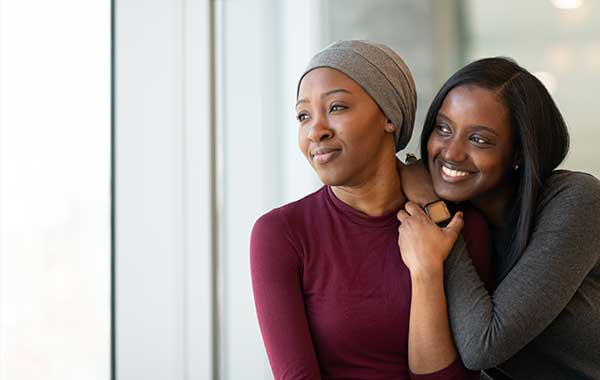What is a cancer survivor?
You might expect that after treatment, you’ll feel totally back to your old self. But the end of cancer treatment can bring about a mix of feelings. You might feel relief, but you could also experience nervousness, fear, depression or abandonment.
Physically, emotionally and medically, cancer survivors often want special care that takes their cancer experience into account.
How do I know what to do after treatment?
Your providers can help you develop a survivorship care plan. This plan should summarize your treatment and diagnosis, and offer guidelines for screenings, follow-up appointments and positive lifestyle habits.
Can I start my own survivorship care plan?
Care plan examples exist online. You’ll still want to consult with a provider who knows you to help complete the plan.
Do I have to get screened for cancer if I’m a cancer survivor?
Whatever your doctor recommends, stick to the schedule. You may need blood work every few months, or you may simply need to check in once a year. Detecting any recurring cancer or late effects of treatment early gives you the best chance to treat those problems.
How many appointments do I have to have after surviving cancer?
How many appointments you have and what screenings you need are highly personalized based on your disease.
Do cancer survivors have to eat healthy?
A poor diet not only increases your risk of developing a second cancer, it also raises your risk of other health problems, like heart disease and diabetes.
What diet should cancer survivors follow?
The American Cancer Society recommends that you stick to the same nutrition guidelines designed to prevent cancer even after you’ve had cancer. In general, this means sticking to a diet rich in fruits and vegetables and low in red or processed meats. Limit saturated fats and sugar, and opt for low-fat dairy and whole grains.
Should cancer survivors exercise?
Yes. Even a simple 30-minute walk each day helps. Staying active lowers your risk of future cancers and other health conditions. Exercise may also help you deal with some of the long-term side effects of cancer treatment, such as pain and fatigue.
The American Cancer Society suggests that patients who remain active over time may experience fewer, less intense symptoms associated with cancer, and may be less likely to experience cancer recurrences.
I’m too tired; shouldn’t I rest and not exercise?
Cancer survivors can experience symptoms such as fatigue, nausea and chronic pain. These symptoms can make the idea of physical activity daunting. In reality, light to moderate exercise can boost both mental and physical health, as well as reduce the symptoms that make you feel like you can’t exercise.
How much do I have to exercise?
Start simple and listen to your body. Try an easy 10-minute walk, building up to 30 minutes of brisk walking a day.
Cancer survivors can realize significant benefits from engaging in light to moderate endurance and recreational activity for just 20 minutes a day.
What’s the best kind of exercise for cancer survivors?
Activities such as walking, swimming, biking, weight lifting, water aerobics and fun group exercises create the greatest potential for success. Our cancer survivorship specialists can work with you to find the best fit for your needs.
Why do cancer survivors need to worry about mental health?
Your mental health is linked to your overall well-being. Depression, stress and anxiety can cause a host of problems that lead to ill health.
Won’t getting through cancer make me happy?
Sure. But also, cancer treatment can leave you struggling emotionally, even when you’ve gone into remission. Many cancer survivors experience severe anxiety about their risk of recurrence or depression because of physical changes from treatment.
What should I do if I’m feeling depressed or worried?
If you find that you’re suffering from symptoms of depression or experiencing anxiety that stops you from doing normal activities, seek out help. You are not alone. With counselors, support groups and online forums, there are others who have been through the same things and can help you get through them too.
Learn more about our cancer survivor services.
